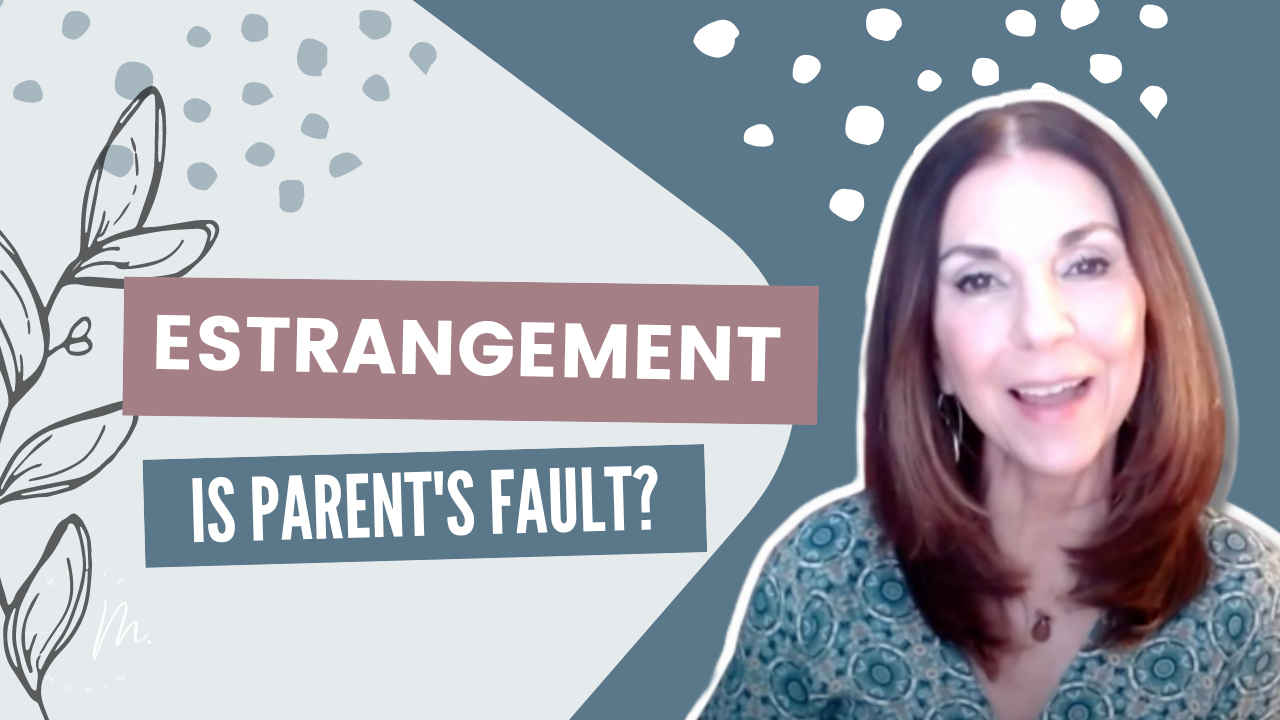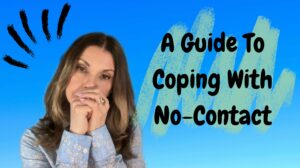Is estrangement always the parent’s fault? The truth is estrangement is so complex that there is no simple absolute answer to guilt. The answer is yes when estrangement comes from a parent’s toxic or abusive behavior. There are so many variables and influences judging parents always guilty is unreasonable. Parents and adult children search for answers to make sense of the emotional turmoil. This article explores the contributors of estrangement, the adult child’s perspective of estrangement, and Is Estrangement Always The Parent’s Fault?
When Parents Are to Blame
Toxic parenting, abuse, and betrayal are the three most common reasons adult children estrange. Parents are responsible in cases where the adult child suffered physical or emotional abuse perpetrated by the parent. Likewise, the parent’s partner, spouse, or close friend physically or emotionally harms the child; sadly, the parent failed to protect the child.
When there’s a violation of trust or confidence, secret-keeping, the adult child perceives their parent betrayed them. Toxic or Bad parenting is a failure to be emotionally present and supportive. Toxic parents were consistently and predictably problematic. Adult children perceive these behaviors as causing them harm. Violations involve perpetrators and victims.
Adult children are victimized by emotional and physical abandonment and authoritarian parenting, where the child does not have a voice. For example, parents were demanding, shaming, name-calling, and highly critical. Parents may have expected the child to “pseudo-parent” younger children.
Are Parents Always To Blame?
Many individuals speak of the one reason that caused the cut-off. However, multiple factors participate in the breakdown of a parent-adult-child relationship.
Contributors to Estrangement
Divorce
Divorce adversely affects children, mainly when there is continued conflict among parents.
Life cycle events
Significant events such as a marriage, the birth of a baby, an engagement,
and funerals are stressors that can influence conflict and estrangement
Abnormal stressors -Unanticipated losses
Stressors and losses such as a family member’s death, personal injury or illness, change in work, financial status, living conditions, and minor law violations can negatively impact relationships.
Domestic violence
Adult children who witness domestic violence suffer adverse effects.
Mental illness and Addiction
Parents or adult children who struggle with mental illness or addictions can pose excessive strain and worry to their families. All parties suffer and search for relief under these circumstances.
Parental alienation
When one parent negatively paints another parent, children are negatively influenced. The ensuing tensions and potential for long-term cut-off are likely.
Differing Values and Lifestyles
The opposing of one’s choices in gender, sexual partner, and personal values exacerbates conflict and can often spur a cut-off.
Unfulfilled expectations
Parents and adult children can initiate disappointments resulting from unfulfilled expectations. The expressed angst
may intensify other factors and increase the potential for estrangement.
Secrets
Secrets kept or exposed can lead to feelings of betrayal. Parents may unintentionally keep secrets believing they are protecting their children.
Unfortunately, adult children often react with anger and hurt that they were lied to. Keeping secrets is an omission of the truth.
Ineffective communication patterns
Survival and personal growth
As cultural changes continue, one’s survival and growth can confirm the notion that the comforts of the individual supersede the ties to the family.
Punishment
Adult children and parents may retaliate after conflict, betrayal, or another incident by punishing the other with estrangement.
Inherited and secondary estrangement
Families with generationally systemic estrangement pass on the inclination to cut off to solve discomfort, family dysfunction, and conflict.
Cultural Changes
There is no doubt that the last fifty years have brought enormous change—the increase of information, opportunity, and shift in cultural norms. The cultural norms once widely accepted have been significantly dismantled by individualism. Adult children are more likely to consider their comforts and personal preferences over family obligations and the idea of blood being thicker than water.
What is the Verdict?
Considering the many contributors to estrangement, it is difficult to implicate sole responsibility on parents. However, when parents are blamed, there is a desire to make sense of one feeling harmed. Adult children often want their parents to take responsibility. There is a need to define what went wrong and assign fault.
Then if the reason is known, we can place the responsibility on one person.
Adult children who cut ties do so because of their distress. They cut ties to lessen their discomfort.
What parents want is an answer to the question of what went wrong. They search as though finding the one reason will numb the pain somehow.
Adult Children And What Influences The Their Decision To Cut Off
Kylie Agllias, in her book Family Estrangement a Matter of Perspective, discusses how people will make a “low relational “evaluation” based on the assumption that members will look after each other’s welfare. In other words, adult children evaluate their parents on feeling their parents had their welfare in mind.
Afilias states, “Relational evaluation is the extent to which a person perceives that a relational partner values them.” If there is a low relational evaluation, there is a sense that the relational partner values them less than they want or expect.
Adult children will leave a relationship when they sense there is danger or someone failed to protect them. However, what an adult child perceives is filtered through the lens of how they are influenced. For example, individuals are influenced by their past experiences, the expectations of others, the opinions and influence of others, emotional sensitivity, patterns of thinking, values, and culture.
Adult children who perceive a low relational evaluation make an assessment based on danger, worth, manipulation and fairness, and rejection. In other words, Individuals will perceive a low relational evaluation and avoid or reject a relationship when they sense:
- That they are in some emotional or physical danger or that they failed to protect them.
- That the person being evaluated has low worth and little to support their goals or emotional welfare.
- Exploitation- the evaluated person has used, manipulated, or taken advantage of them. The perception is of unfairness.
- Rejection: The person being evaluated has negative feelings, does not accept them and the perceiver feels threatened.
Parents Vs. Adult Children
The differences between who caused or influenced estrangement are remarkable.
Interviewed parents reported parental alienation, divorce, entitlement, objectionable relationships, sibling jealousy, and favoritism as the most common causes of estrangement. On the contrary, adult children tend to view their reason to cut off as a characteristic of their parents. Adult children evaluate their parents using a relational value. They look at their parent’s character and behaviors.
Does Fault Matter?
Estrangement is so multifaceted finding a single one-dimensional cause is challenging. However, there are no perfect parents, so the likelihood that you potentially hurt your adult child is possible.
For parents who have been told why their kid has cut ties making amends with your child will help them know you are aware of what happened to them. It alerts them that you value them and are willing to take responsibility.
Empathy towards adult children helps us enlarge our hearts toward them. There is no quick resolution, and estrangement may last longer than you hoped.
Estrangement describes the widespread condition when one family member cuts ties with one or more family members. Are parents to blame when the relationship estranges? Adult children cite abuse, betrayal, and toxic or poor parenting as reasons for cutting ties with their parents. Interviewed parents reported parental alienation, divorce, entitlement, objectionable relationships, sibling jealousy, and favoritism as the most common causes of estrangement. Both sides have little agreement regarding the cause of separation. This article discusses Is Estrangement Always the Parent’s Fault?
Resources:
Agllias, Kylie. Family Estrangement A Matter Of Perspective. New York, Routledge, 2017.
Carr, K., Holman, A., Abetz, J., Kellas, J. K., & Vagnoni, E. (2015). Giving voice to the silence of family estrangement: Comparing reasons of estranged parents and adult children in a nonmatched sample. Journal of Family Communication, 15(2), 130-140.
Coleman, Joshua. Rules of Estrangement. New York, Harmony Books, 2020.
Morin, Marie. Feeling Heartbroken and Alone? How to Pick Up the Pieces When You are Estranged. eBook. 2022.
Morin, M.L. [Morin Holistic Therapy]. (2022, January 4). What is Family Estrangement? You Are Not Alone.
Morin, M.L. [Morin Holistic Therapy]. (2021, September 8). Diaphragmatic Breathing: 5-Minute Deep Breathing Exercise for Beginners.
Morin, Marie. How to Deal with Estranged Family During the Holidays (2021, November 21) Sixty and Me. https://sixtyandme.com/estranged-family-holidays/
Pillemer, Karl. Fault Lines Fractured Families and How to Mend Them. New York Penguin Random House, 2020.








